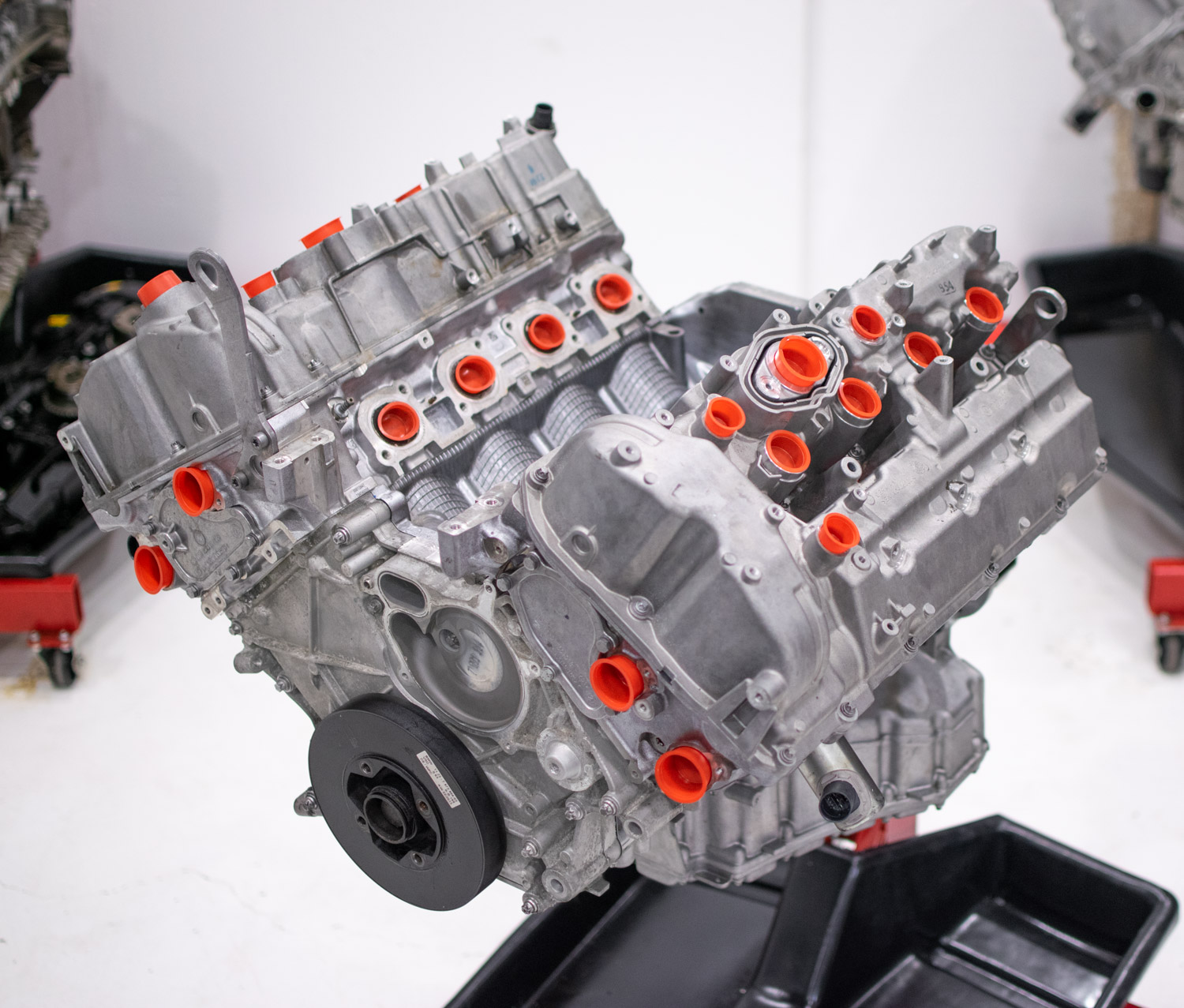Unveiling the Intricacies of Next-Generation Power Units: a Deep Dive Into Advanced Engine Designs and Technologies
In the world of automotive design, the relentless pursuit of sustainability, performance, and performance has actually thrust the evolution of power devices to unprecedented elevations. As we depend on the precipice of a brand-new era in transportation, the intricacies of next-generation engine layouts bid us to check out the advanced innovations and advancements that guarantee to redefine the driving experience. From advanced products that press the borders of durability and weight decrease to advanced turbocharging and supercharging systems that boost power outcome to brand-new degrees, each component of these power devices holds a crucial to unlocking the future of automobile engineering. Delving much deeper into the worlds of discharge control, intelligent engine management systems, and the perspective of power unit growth, we discover ourselves on the cusp of a transformation that guarantees to reshape the landscape of flexibility as we understand it.
Advancement of Engine Materials

The shift towards advanced engine products has likewise allowed designers to develop engines with greater power results while keeping gas performance requirements. The usage of light-weight products lowers the total weight of the engine, leading to improved fuel economic situation and lower exhausts. Furthermore, improvements in materials technology have actually allowed for better thermal management within engines, causing enhanced reliability and durability.
Turbocharging and Supercharging Technologies
How do Turbocharging and Supercharging Technologies change engine efficiency and effectiveness in modern lorries? Turbocharging and turbo charging are technologies that significantly boost engine performance by increasing the quantity of air intake right into the burning chamber. Turbocharging achieves this by utilizing a turbine driven by exhaust gases to pressurize the consumption air, while supercharging makes use of a belt- or chain-driven compressor to accomplish the very same impact.
These technologies enable smaller, extra fuel-efficient engines to produce power comparable to larger ones, called downsizing. Forcibly more air right into the cylinders, turbocharging and turbo charging boost combustion performance, resulting in increased horsepower and torque result without a considerable rise in engine size. This causes much better velocity, lugging capability, and total driving performance.
Furthermore, turbocharging and supercharging add to enhanced gas efficiency by enabling the usage of smaller engines that take in much less gas under normal driving conditions - bmw engine. This mix of enhanced performance and performance has actually made turbocharging and supercharging important parts of numerous modern-day engine layouts
Emission Control and Environmental Effect
With boosting international problems pertaining to air quality and environmental sustainability, the application of discharge control modern technologies in vehicles plays an essential function in minimizing hazardous toxins launched into the atmosphere. Modern cars are furnished with advanced discharge control systems that help lessen the ecological effect of vehicle procedures. Catalytic converters, for example, are made to convert hazardous gases such as carbon monoxide, nitrogen oxides, and hydrocarbons right into less hazardous substances like co2 and water vapor.
Furthermore, developments in engine technology, such as the integration of exhaust gas recirculation systems and careful catalytic decrease, have considerably added click over here to reducing exhausts. These modern technologies work in tandem to optimize combustion performance and decrease the launch of damaging toxins right into the air. In addition, the advancement of hybrid and electrical automobiles stands for a vital action towards reducing the total environmental footprint of the transport market.
Intelligent Engine Management Equipment

Furthermore, these systems enable lorries to satisfy stringent emissions criteria without compromising performance, providing a much more eco-friendly driving experience. The combination of expert system and machine learning capacities in engine management systems remains to push the boundaries of what is possible, resulting in further improvements in performance, reliability, and general vehicle efficiency. bmw engine. As vehicle technology breakthroughs, intelligent engine administration systems will certainly play a vital role fit the future of transportation towards a much more lasting and efficient instructions
Future Trends in Power Unit Development
As intelligent engine management systems lead the means for boosted control and optimization in modern vehicles, future patterns in power system development are positioned to redefine the landscape of vehicle propulsion modern technologies. These alternate power resources provide enhanced efficiency and performance while aligning with stringent ecological guidelines.
One more significant pattern is link the combination of sophisticated materials and making methods. Lightweight materials such as carbon fiber and aluminum are being utilized to lower total car weight, enhancing gas effectiveness and performance. Additionally, advancements in 3D printing and additive production are allowing the production of complicated engine components with greater accuracy and toughness.
Additionally, expert system and artificial intelligence are playing a critical function in optimizing power system performance. These modern technologies permit real-time surveillance and adaptive control, causing much more trustworthy and effective power distribution. Overall, future patterns in power system development are tailored towards sustainability, efficiency, and performance, driving the auto market in the direction of a i was reading this brand-new era of propulsion modern technologies.

Final Thought
In conclusion, the innovations in engine materials, turbocharging, emission control, and intelligent administration systems have actually paved the means for next-generation power units. The detailed styles and innovations in contemporary engines showcase the continuous evolution of automobile modern technology.
Discovering the dynamic developments in engine products has actually been crucial in improving the performance and effectiveness of contemporary engines. Over the years, the development of engine materials has actually played a vital role in pushing the limits of what engines can accomplish.The change towards progressed engine products has additionally enabled designers to make engines with greater power outcomes while maintaining fuel effectiveness criteria.The execution of smart engine management systems in contemporary cars has actually changed the way engines are regulated and optimized for efficiency and efficiency. By gathering information in real-time and analyzing it with innovative algorithms, smart engine management systems can adapt to driving designs, ecological factors, and engine wellness to make best use of power result while lessening fuel consumption and emissions.